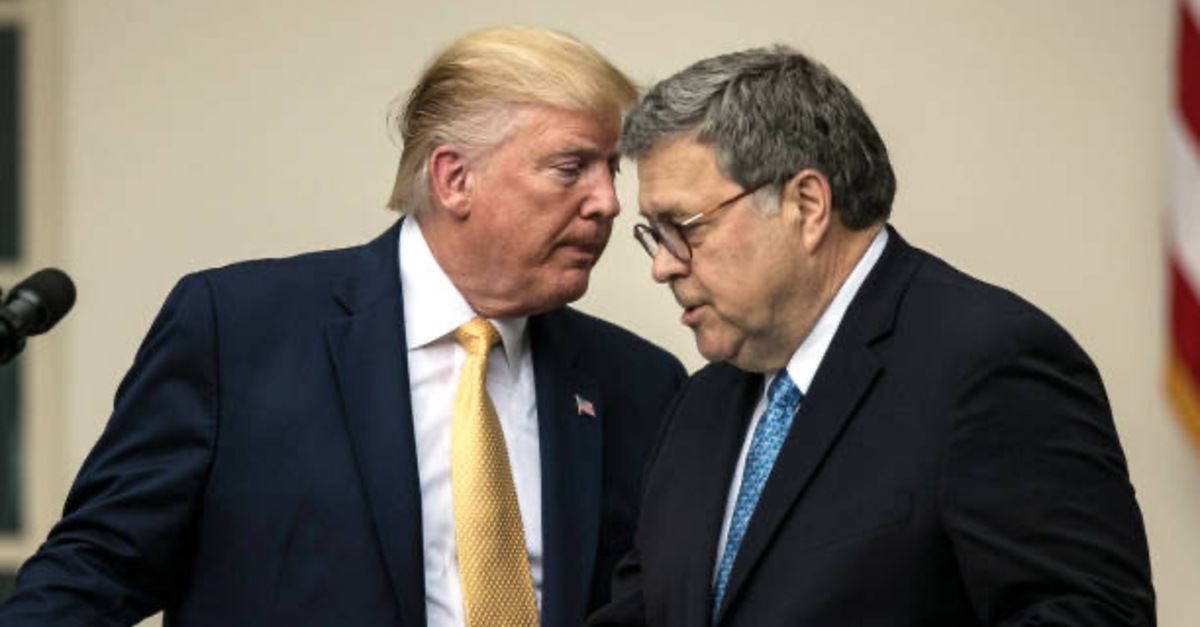
There appears to be a need for some better crisis-management over at the Federal Judges Association (FJA). When last we left the FJA, they’d decided to move up their scheduled spring conference and have an “emergency meeting” via conference call. Exactly no one doubted that the impetus for the rush was the related to the president’s choice to insert himself into matters of federal criminal prosecution.
Sure, it was a little weird that the FJA—a group that generally focuses on things like judges’ salaries and health benefits–was getting involved in a highly-political matter pending before the judiciary: the Roger Stone case of great interest to President Donald Trump. Still, these are unprecedented times, and when FJA President U.S. District Judge Cynthia Rufe said “we just could not wait until April to discuss matters of this importance,” it seemed pretty obvious what she meant.
U.S. Circuit Court Judge Jose Cabranes (also a member of the FJA) had some words of warning for his judicial colleague. He wrote in an email to Judge Rufe that was eventually widely reported:
“I urge you to come off this precipice, and to withdraw from active politics in the name of the federal judges of this country. If you do not do so, you risk confusing the public about the role of the courts in our constitutional order and thereby deepening the crisis in confidence in our institutions.”
Point taken. It’s usually a better idea for federal judges to keep the lowest of profiles when it comes to hot political topics and related cases.
Now, though, the FJA is conducting the mother of all backpedals, insisting that the speculation that the impromptu meeting was about Trump and Stone and William Barr was entirely erroneous. According to an email reportedly sent out to the group’s list-serve (h/t South Texas College of Law Houston Prof. Josh Blackman at Reason) the conference call set for Feb. 19 “was not an ‘emergency’ meeting,” and “was not scheduled in response to any public controversy or pending case.” News of the meeting unexpectedly went public, according to the email, and “that fact led to inferences and reports that were, at a minimum, misleading.” That’s why the meeting was postponed, they said.
Misleading? But what about those quotes from Judge Rufe? She told a USA Today reporter:
“There are plenty of issues that we are concerned about. We’ll talk all of this through.”
“I am not concerned with how a particular judge will rule. We are supportive of any federal judge who does what is required.”
“We just could not wait until April to discuss matters of this importance.”
According to the FJA’s story, we all got it wrong. Its email to members continued [emphases ours]:
President Cynthia M. Rufe issued no public statements or press release of the originally scheduled meeting, nor did she solicit press contact. Last Monday afternoon one reporter called seeking confirmation of the objectives of our Executive Committee meeting. How that reporter learned of the meeting is unknown. Judge Rufe acknowledged the fact that a meeting had been called but rejected the reporter’s speculations as to its timing and purpose.
At no time was there any intent to involve the FJA in any political controversy or in any pending case.
Then came the pivot [again, emphasis ours]:
The FJA is non-partisan and seeks, like the judiciary itself, to remain outside of the political fray. Similarly, the FJA does not comment on the merits of any matter pending in any court, consistent with the Code of Conduct that applies to all of us. To avoid risk that the meeting might draw further attention, it was postponed. We chose not to issue a statement at that time for the same reason.
Right, because being committed to non-partisanship clearly means that federal judges won’t (or shouldn’t) notice when a sitting president attempts to influence federal criminal sentencing. Let’s be serious: Judge Rufe’s statements as to the purpose of the “emergency meeting” may not have been the most prudent to share with the media – but they certainly smack of honesty. The FJA’s official statement made no alternative explanation for the judge’s comments, nor did it say that USA Today had been incorrect in its reporting. For a group of federal judges, these people don’t seem to have a solid handle on what’s persuasive.
[Image via The Asahi Shimbun via Getty Images]
This is an opinion piece. The views expressed in this article are those of just the author.